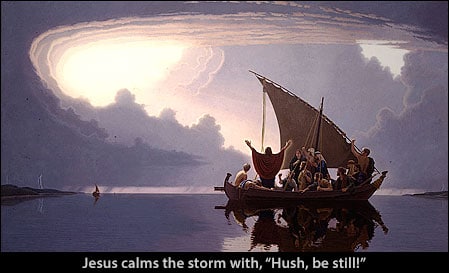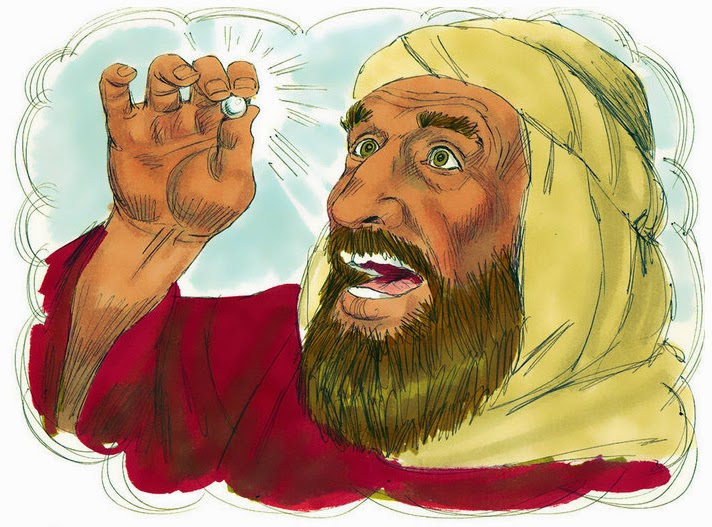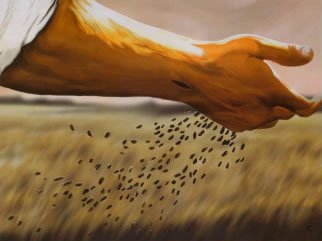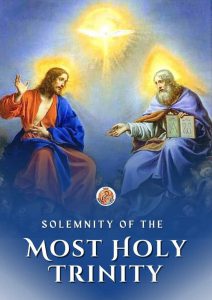Peace in times of Fear & Depression
1 Kings 19:9A, 11-13A: Rom 9:1-5; Mat 14:22-33

Fr Nelson Lobo OFM Cap
FIRST READING: Depression is very real part of life for many people. It is a very real problem. Depression is marked by a sense of being pressed down, weighed down, or burdened, which affects a person physically, mentally, spiritually, and relationally. Many Biblical characters faced DEPRESSION such as Moses, Elijah, Paul, Psalmist and even Jesus. John 12:27 “Now My soul has become troubled; and what shall I say, ’Father, save Me from this hour’?
God gives us a case study in clinical depression in todays first reading. From this text we find that Elijah experienced many of the classic symptoms…
Fear – “Elijah was afraid and ran for his life….” (1 Kings 19:3). Suicidal tendencies – “I have had enough, LORD, Take my life; I am no better than my ancestors.’ (1 Kings 19:4). Excessive tiredness – “Then he lay down under the tree and fell asleep…” (1 Kings 19:5). Feelings of rejection – “The Israelites have rejected your covenant, broken down your altars, and put your prophets to death with the sword. I am the only one left, and now they are trying to kill me too.” (1 Kings 19:10).
What does this tell us? It tells us that even God’s most dynamic servants can suffer from depression. It’s not necessarily a mark of a lack of faith. Elijah was THE man of God in his day. And now he’s so far down in the depths of despair. But that’s not where God left him. God didn’t say: “well sorry Elijah – you have a chemical imbalance in your brain– so I can’t help you!” God recognized that Elijah’s depression was not an imaginary problem. Elijah’s depression was real. And God did not say – “get a hold of yourself Elijah. This is a SINFUL attitude … where’s your faith man???” God didn’t treat Elijah roughly. Infact God understood his depression and provided for his physical needs. In answer to Elijah’s prayer to die, God just lets him sleep. Then God sends him down to the desert in the South for 40 days and nights. God sent him to a place of worship – God sent him to Mt. Horeb, the Mt. of God (where the Law given to Moses). Church is one of the best places to deal with Depression. The Church is a place where we listen to each other and help one another. “Bear one another’s burdens, and so fulfil the law of Christ.” (Gal 6:2)
SECOND READING: One very unique thing about Paul’s anguish over the lost and rebellious state of his Jewish brethren was his impossible desire to be cut off from Christ for the sake of his brothers. So burdened and anguished over the Jews rejection of Christ and their being on their way to Hell is Paul that he makes it clear that he wishes he could trade his salvation and very life for the salvation of the Jews that he would. What Paul says finds a parallel in Exodus 32:32. When Moses came down from the mountain after receiving the 10 commandments, he found the people dancing around the golden calf and worshiping it as their god. In response to such Moses said “Lord, if it be possible, blot this sin from their lives, but if not, blot me out of your book” The tragic mistake, the mistake which we see Paul deeply grieved over, is that the Jews have put their confidence in these blessings for their salvation- rather than in Jesus Christ to whom these things point.
GOSPEL: The Gospel says “when evening came…” and it refers to the “fourth watch of the night “. This gives us a time frame to work with. Feeding 5,000 people took all day! By evening disciples were dispatched, crowd dismissed, Jesus begins climbing slope of a mountain to find a place to pray. Storm arises while they are in “the middle of the sea” [Mark 6.47] – i.e., about four miles from shore. How long does it take to row four miles? Why did Jesus wait until the fourth watch of the night (after 3:00 am) to respond to their prayers? Why didn’t he go to them immediately? Surely, they were praying. He knew that they were in the storm.
Apparently, Jesus’ delay in coming to them was intentional. Why does the Lord often delay in answering prayer? The Lord had a lesson he wanted to teach them. But they were not ready. They had abandoned hope. Their faith had crashed. When they saw something coming toward them on the water, they had by then given up on the possibility that Christ would save them. But Jesus had sent them into the storm in the first place.
Do not feel abandoned when your prayers seem unanswered. Jesus’ prayer that the cup of suffering be removed was not answered. Paul’s prayer that his thorn in the flesh be eased was not answered. Remember their words, “Not my will but your’s be done” and “My grace is sufficient.” Unanswered or delayed prayer are for a reason and we must discover that reason.
Very often you can expect Jesus to come to your rescue only after all other means of rescue are gone. The Fourth Watch represents those times of hopelessness and helplessness we all feel from time to time. The Disciples on the storm-ravaged Sea that night, by the fourth watch, were exhausted. They were physically exhausted. Their prayers were exhausted. Surely, they had fervently prayed throughout their ordeal. Their expectations were exhausted. Certainly, they had expected a prompter response to their emergency. Their hope was exhausted. If Christ was coming, he would have come before now. Their faith was exhausted. When Christ finally appeared, they thought he was a ghost, a hallucination.
We all face our Fourth Watches. These are times of despair when Jesus often comes to us. So in your problems and depressions, fears and anxieties don’t give up. Continue trusting in the Lord for He is the Lord of heaven and earth. Amen !









